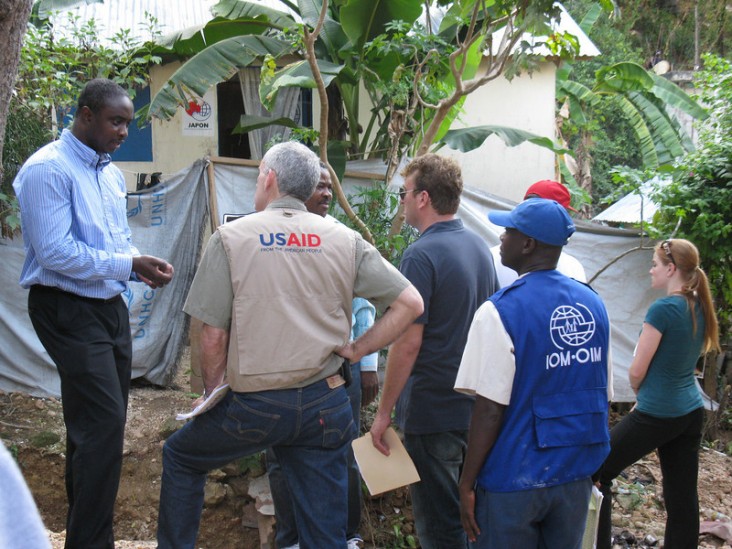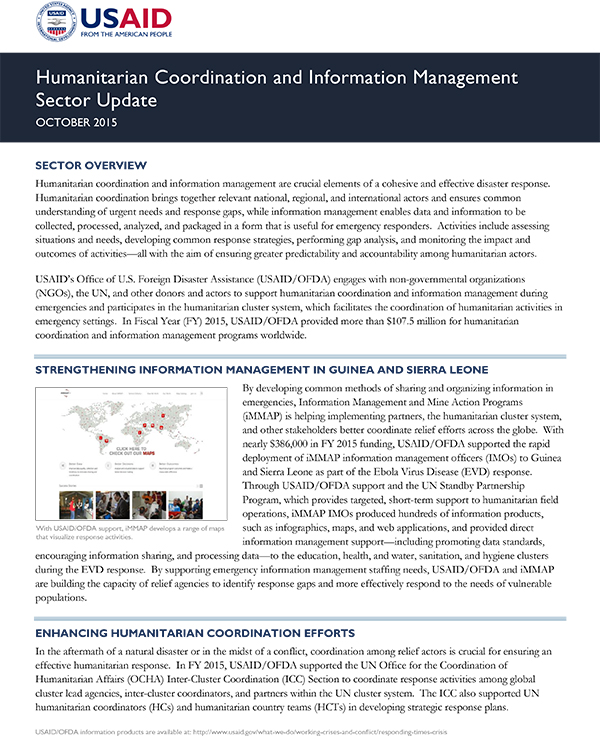- What We Do
- Agriculture and Food Security
- Democracy, Human Rights and Governance
- Economic Growth and Trade
- Education
- Environment and Global Climate Change
- Gender Equality and Women's Empowerment
- Global Health
- Humanitarian Assistance
- Transformation at USAID
- Water and Sanitation
- Working in Crises and Conflict
- U.S. Global Development Lab
Speeches Shim

Humanitarian coordination and information management are crucial elements of a cohesive and effective disaster response. Humanitarian coordination brings together relevant national, regional, and international actors and ensures common understanding of urgent needs and response gaps, while information management enables data and information to be collected, processed, analyzed, and packaged in a form that is useful for emergency responders. Activities include assessing situations and needs, developing common response strategies, performing gap analysis, and monitoring the impact and outcomes of activities—all with the aim of ensuring greater predictability and accountability among humanitarian actors.
USAID’s Office of U.S. Foreign Disaster Assistance (USAID/OFDA) engages with non-governmental organizations, the UN, and other donors and actors to support humanitarian coordination and information management during emergencies and participates in the humanitarian cluster system, which facilitates the coordination of humanitarian activities in emergency settings. In Fiscal Year 2015, USAID/OFDA provided more than $107.5 million for humanitarian coordination and information management programs worldwide.



Comment
Make a general inquiry or suggest an improvement.